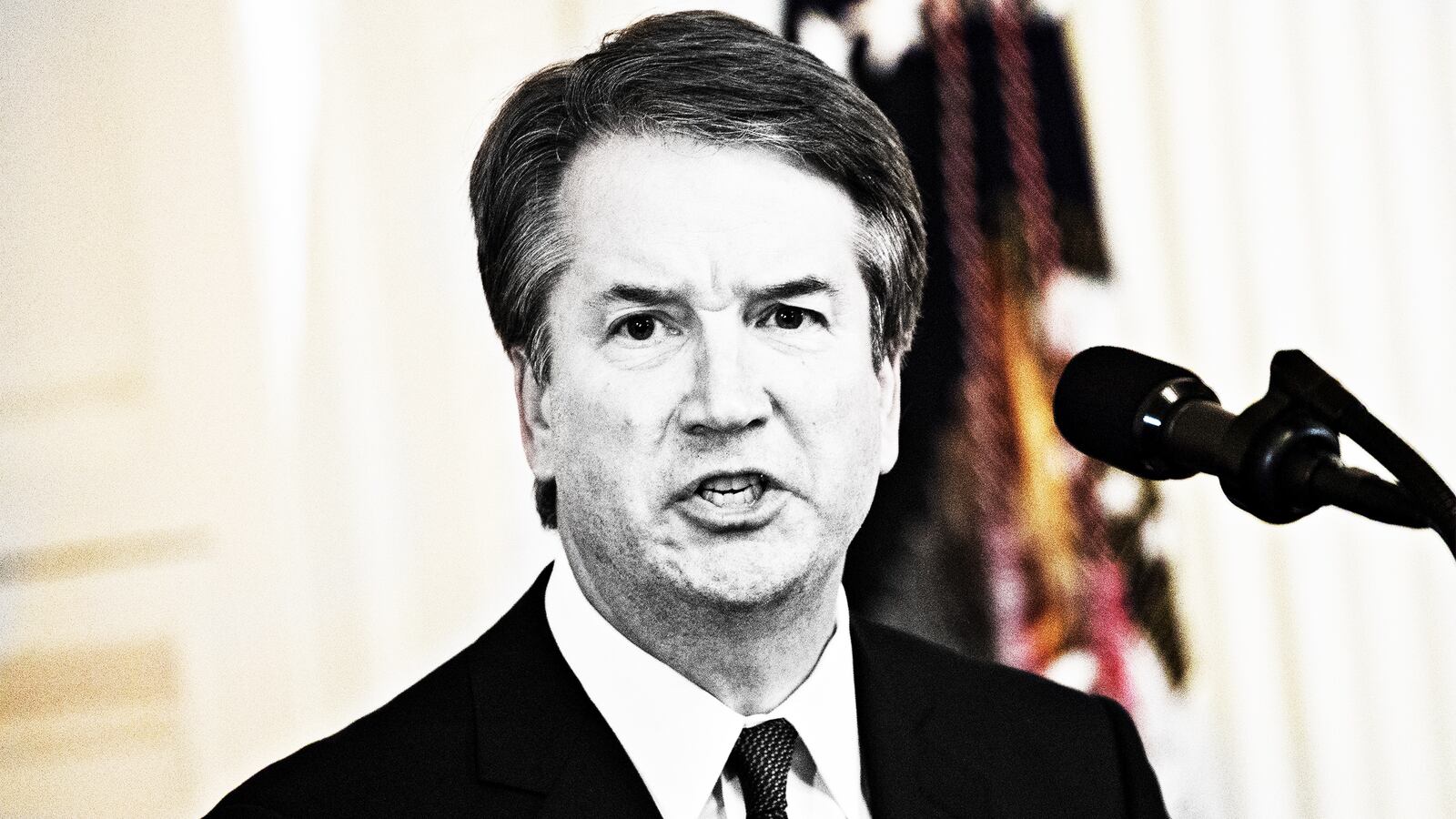Since Brett Kavanaugh was nominated to the Supreme Court on Monday night, the line on his stance on abortion has been “we don’t really know what he thinks.”
But in a speech given just last year to the American Enterprise Institute, Kavanaugh made it perfectly clear that he believes Roe to have been wrongly decided.
The context was a speech Kavanaugh gave on the legacy of the late Chief Justice William Rehnquist, whom he described as “my first judicial hero.” The relevant portion of the speech is where Kavanaugh describes “the Court’s power to recognize unenumerated rights.” There, Kavanaugh said:
“Justice Rehnquist was not successful in convincing a majority of the justices in the context of abortion either in Roe itself or in the later cases such as Casey, in the latter case perhaps because of stare decisis. But he was successful in stemming the general tide of freewheeling judicial creation of unenumerated rights that were not rooted in the nation’s history and tradition.”
Those are Kavanaugh’s words, not Rehnquist’s. It is Kavanaugh, not Rehnquist, describing Roe and similar cases as the “freewheeling judicial creation of unenumerated rights” – the kind of judging which Kavanaugh condemns over and over again in his speech.
The rest of Kavanaugh’s remarks bear this out, in several instances.
First, even describing Roe as recognizing “unenumerated rights” indicates a specific, conservative understanding of the case. To conservatives, Roe “recogniz[ed] a constitutional right to abortion,” which is how Kavanaugh describes it. But this is not how liberals understand the case. They see abortion as one particular expression of the right not to be deprived of “life, liberty, or property” without due process, because no process can be “due process” when the government is commandeering the uterus of a citizen.
There is no “right to abortion.” There is a right to have one’s internal organs free from state control, because in such a context, no process is due process.
Second, Kavanaugh describes the “right to abortion” as not being “deeply rooted in the nation’s history and tradition.” Again, this is opinion, not fact. As the majority in Roe itself explained, there is a long tradition of forbidding government to control the internal organs of its citizenry and to make personal decisions about the family for them. That value may not have been upheld in the states which forbade abortion and contraception, but it one that is deeply rooted in the nation’s history and tradition.
Third, in multiple times in the speech, Kavanaugh describes the Warren Court, and Roe in particular, as engaging in “social policy.” Rehnquist, Kavanaugh writes, succeeded in “limiting the Court’s role in the realm of social policy and helping to ensure that the Court operates more as a court of law and less as an institution of social policy.”
Yet no liberal thinks the Supreme Court is an “institution of social policy.” Liberals believe that the Court is protecting the constitutional rights of citizens against conservative social policies that abridge them. Laws banning abortion are social policy. Defending women against them is defending constitutional rights.
These threads come together when Kavanaugh approvingly describes Rehnquist’s view that “however socially desirable the policy goals sought to be advanced might be, advancing them through a freewheeling, nonelected judiciary is quite unacceptable in a democratic society.”
There it is again – freewheeling, as if the Supreme Court in Roe was simply enacting its preferred “social policy” rather than applying the Fourteenth Amendment to the context of forcing women to remain pregnant against their will. Kavanaugh praises the Roe dissent and condemns the Roe majority decision as a freewheeling and improper judicial making of social policy.
There is no doubt, reading this 2017 speech, that Judge Kavanaugh believes not just Roe but the entire series of cases of which it is a part to be “freewheeling” judicial legislation of “social policy.” By implication, that also extends to Griswold (contraception) and Obergefell (marriage). But it explicitly applies to Roe v. Wade.
The 2017 speech accords with other parts of Kavanaugh’s career. In his own decisions, he has sought to further limit Roe by requiring undocumented immigrants in detention centers to (somehow) obtain parental consent before obtaining an abortion, saying that such a burden was not undue.
He has been put forward by two groups, the Federalist Society and the Heritage Foundation, who are committed to overturning Roe, and has been nominated by a president who promised to undo it.
The only question that remains about Kavanaugh’s view of Roe is whether he sees it as such a wrong decision that it overcomes the doctrine of stare decisis, i.e. the deference due to Supreme Court precedent. That was not a question he discussed in his speech, though it is obviously one that will come up during his confirmation hearings.
Thanks to Judge Kavanaugh’s remarks from last year, Democrats can now be more specific. They now know that he believes Roe to have been wrongly decided and to have been a freewheeling exercise in creating social policy. So they should demand that he explain the specific application of stare decisis to a frontal attack on Roe.
Is Roe so wrong that it may be overturned by a subsequent Supreme Court, even though it has been the law of the land for 45 years? That is what Americans must now hear from Judge Kavanaugh.






